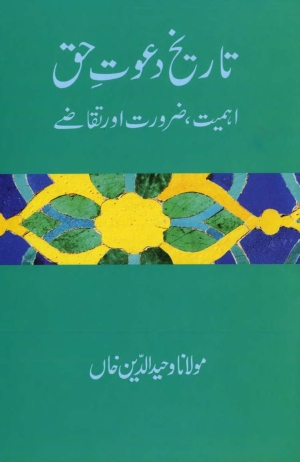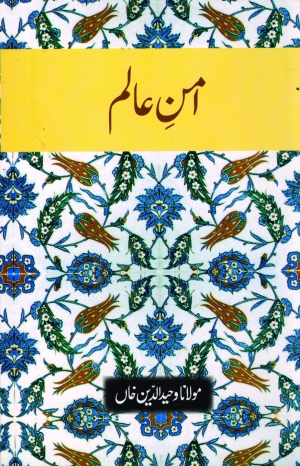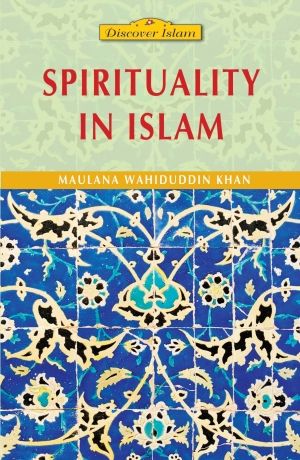Sufism (Tasawwuf) is the form that mysticism has taken in Islam. The term Sufism embraces the philosophy and practices in Islam that aim at direct communion between God and man. Scholars differ in the meaning and derivation of this word used for those who opt for this spiritual path. Some associate it with the Arabic word ‘safe’, meaning purity. Others are of the view that it may refer to the Ashabus Safa or the people of the bench.
The Sufis trace the origin of Tasawwuf to the Prophet of Islam himself. All the religious orders trace their lines of succession back to him. It is believed that the revelations received by the Prophet were two-dimensional—one was in the form of the words of the Quran, and the other was in the form of divine inspiration within his heart. The former was meant for all, while the latter was to be imparted to the chosen few through a line of succession, that is, from the heart to heart. “Book knowledge” — of the words of the Quran and Hadith — was known as ilm-e-Safina, while “heart-knowledge” was known as ilm-e-Sina.
The knowledge of the wonders of the Quran and Hadith was passed on from one generation to another by the religious scholars or Ulama, while the knowledge of the heart was imbibed by those called Sufis.
Featured Articles
Featured Videos
FAQs
The concept of spirituality in Islam is based on God-realization through contemplation, another name for which is contemplative spirituality.
The ultimate reality in Islam is God. God is the Creator of man. Man’s purpose in life is to realize God and worship Him.
According to Islam, God is separate from man. He is self-existent. Man’s goal in life is to try to seek this separate and permanent God at the level of consciousness.
Traditionally, the method of meditation practiced in Sufism (mysticism) is generally regarded as representing the method of meditation in Islam. However, this is not correct. Meditation in Islam is based on contemplation, reflection, and the drawing of spiritual lessons from material events and nature. Thus the basis of meditation in Islam is thinking and reflection.
The entire cosmos becomes an object of reflection, that is to say, the Creator is realized through pondering over His creations. This verse of the Quran provides an apt illustration of Islamic meditation:
“There are signs in the creation of the heavens and the Earth, and in the alternation of night and day for people of understanding; who remember God while standing, sitting and [lying] on their sides, and who ponder over the creation of the heavens and the Earth, saying, ‘Lord, You have not created all this without purpose. Glory be to You! Save us from the torment of the Fire'. (3:190-191)
Abu Dharr al-Ghifari (d. AD 652), a Companion of the Prophet says: "Even when a bird was seen flying in the air, the Prophet would draw a lesson and teach us". (Musnad Ahmad, Hadith No. 21361)
God’s universe provides an introduction to God. The existence of creation speaks of the existence of the Creator. The vastness of space speaks of the unfathomably vast power of God. The co-existence of various parts of the universe is an indication of the successful planning of God. The universe in continuous action is an indication that the Lord of the universe is a living being. The meaningfulness of the universe is an expression of the meaningfulness of God’s being. The loftiness of the mountains, the brilliance of the sun, the flowing of the river and the blowing of the wind are signs of God's majesty. From the chirping of the birds to the galaxies and black holes in space, all declare the glory of God. Meditation is to ponder over these divine manifestations and attributes in order to get to know them in their depths, because it is through these signs that God can be realized. This is Islamic spirituality, another name for which is contemplative spirituality.
Source: Spirit of Islam January 2021
Essentially Sufism is a way of purifying the soul. Sufism (tasawwuf) ought to be just as important today as it has ever been throughout its long history. Being a way of purifying the soul– a necessity for each new generation– its role should never diminish with changing times and circumstances. Yet, paradoxically, although it still has millions of adherents, as a form of religion, it is definitely in a state of decline.
This is because the traditional form of tasawwuf, which has been shaped by many historical accretions, has no great appeal for the modern educated mind. For instance, tasawwuf, as we now know it, is embroidered by tales of miracles and mysticism, and for support for its ideology, it relies upon doubtful analogies. But the scientific mind is skeptical of analogies and is impatient with mysticism.
There is also the question of Sufism being heart-based, the heart in ancient times being regarded as the seat of thought and emotion. But now modern science has shown the heart to be nothing but an organ which controls the circulation of the blood and it has been conceded that it is the mind which is the center of both thought and emotion. This being so, tasawwuf should now be developed as a mind-based philosophy. It will thus have a much stronger attraction for educated minds.
The need of the hour therefore is to modernize Sufism, couching it in the contemporary idiom, and explaining its ideology in a way that should address the present-day individual, whose major concern is as much with intellectual development as it is with purification of the soul.
In such a situation what is required is that tasawwuf is developed as a mind-based activity. In this way it will be possible to update spirituality, and people will find far greater attraction to mind-based spirituality.
Source: Spirit of Islam October 2015
Mysticism is a discipline, in which an attempt is made to establish a direct communion with God through contemplation. Thus Sufi mysticism simply means achievement of the mystical goal by following the Sufi way.
According to the Encyclopaedia Britannica, mysticism is a “quest for a hidden truth or wisdom.” The Fontana Dictionary of Modern Thought defines it thus: “Mysticism is the direct experience of the divine as real and near, blotting out all sense of time and producing intense joy.” According to the mystics, the final state produced by mystical exercises is inner joy or spiritual bliss, whereas the subject of Islamic spirituality is the search for divine truth.
The highlight of human existence is consciousness or the mind. The goal of Islamic spirituality is to use one’s thinking capacity to successfully discover divine truth at the level of the mind, or consciousness. The search for truth, by its very nature, is entirely an intellectual exercise. Its findings too are intellectual in nature. It is successful when the seeker finds rational answers to the questions he poses about the universe and his own existence. The search for truth is not a vague matter. It begins from the conscious mind and also culminates there.
The case of mysticism is quite different. Mysticism is based essentially on intuition and is not a conscious intellectual process. As such, the mystical experience is more an act of spiritual exhilaration than an effort to apprehend the truth in intellectual terms. Mysticism, as popularly conceived, makes the basic assumption that the physical, material, and social needs of man act as obstacles to his spiritual progress. Therefore, mysticism teaches him to reduce his physical needs to the barest minimum; to renounce worldly and social relations; and if possible to retire to the mountains or jungles. In this way, he will supposedly be able to purify his soul. Thus, by giving up the world and by certain exercises in self-abnegation, a mystic expects to awaken his spirituality.
Source: Spirit of Islam December 2018









